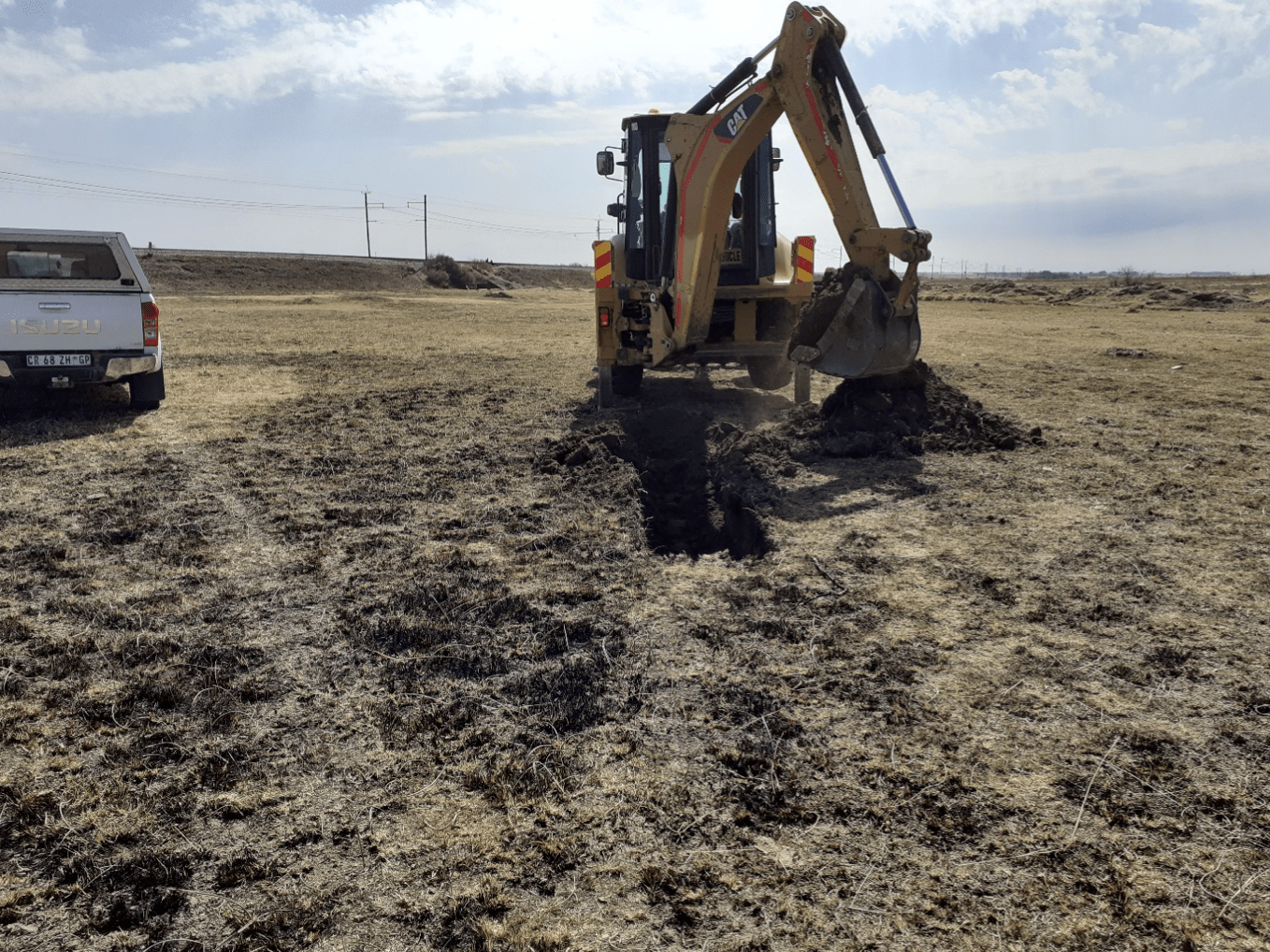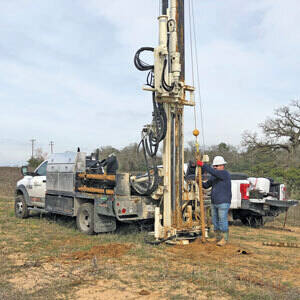The Importance of Geotechnical Design in Resolving Ecological Challenges and Enhancing Construction Safety And Security
Geotechnical engineering serves as a cornerstone in the junction of environmental stewardship and building and construction safety, supplying critical insights right into the habits of dirt and rock under various conditions. This technique not only addresses pressing environmental difficulties such as dirt disintegration and groundwater security yet likewise boosts the robustness of facilities versus natural risks. By applying tactical website examinations and customized mitigation actions, geotechnical engineers play an essential role in protecting both human lives and ecological integrity. Yet, the intricacies of these difficulties elevate essential inquiries concerning the future direction of this area and its effects for lasting development.

Role of Geotechnical Design
Geotechnical design plays a critical function in the layout and building of framework by resolving the habits of soil and rock materials under numerous conditions. This field of design is crucial for recognizing the interaction in between frameworks and the ground, which includes determining the load-bearing capability of soil, assessing security, and predicting prospective settlement or failure.
Geotechnical designers are in charge of carrying out website investigations, which include sampling and testing soil and rock to gather information on their physical and chemical residential properties. This info is important for designing structures, preserving wall surfaces, and other earth-retaining structures that guarantee safety and long life. Geotechnical engineering educates the selection of suitable building approaches and products, thereby decreasing risks linked with soil habits.
Moreover, the integration of geotechnical design concepts into urban preparation and environmental management is essential for dealing with obstacles such as ground contamination and groundwater administration. By recognizing geotechnical variables, designers can create sustainable remedies that boost the strength of framework against all-natural threats, while additionally advertising ecological stewardship. Eventually, the duty of geotechnical design is essential for attaining safe, durable, and eco conscious building and construction methods.
Soil Disintegration Mitigation
Dirt disintegration poses a considerable hazard to both ecological security and infrastructure integrity, impacting roughly 24 billion lots of productive dirt shed yearly worldwide. This phenomenon is worsened by factors such as deforestation, urbanization, and inadequate agricultural methods. Geotechnical engineering plays a pivotal duty in establishing reliable dirt erosion reduction techniques that guard both the environment and building and construction jobs.
One technique involves the implementation of erosion control techniques such as plant life growing, which maintains dirt with root systems. In addition, the building of retaining wall surfaces and balconies can properly lower surface runoff and safeguard prone locations from erosion. Appropriate drain design is likewise critical; it lessens water buildup and directs excess overflow far from crucial frameworks.
Moreover, geotechnical engineers utilize dirt stablizing strategies, such as the application of geotextiles and naturally degradable floor coverings, to enhance dirt cohesion and prevent deterioration - geotechnical specialist. Normal monitoring and assessment of erosion-prone websites make it possible for prompt interventions, making sure lasting sustainability. By incorporating these strategies, geotechnical design not just reduces the impacts of soil disintegration but likewise adds to the durability of infrastructure versus ecological obstacles, ultimately promoting a much safer and more lasting built atmosphere
Groundwater Defense Methods
Groundwater acts as a vital source for alcohol consumption water, agriculture, and industrial processes, making its security vital for ecological sustainability and public health and wellness. Efficient groundwater protection strategies are important in alleviating contamination dangers and guaranteeing the durability of this source.

Normal tracking of groundwater quality is additionally vital, allowing very early detection of contamination resources and promoting timely removal efforts. Utilizing innovative technologies, such as geophysical surveys and remote noticing, aids in recognizing potential threats to groundwater books.
Moreover, public education and learning and stakeholder involvement are critical, cultivating community assistance for groundwater defense campaigns. geotechnical engineer description. By integrating regulatory actions, technological advancements, and community involvement, we can develop a detailed framework that safeguards groundwater resources click over here while advertising lasting advancement and building and construction practices
Landslide Risk Monitoring
Landslides pose considerable hazards to both human security and framework, making efficient threat monitoring approaches necessary. Geotechnical engineering plays a crucial function in identifying, analyzing, and mitigating landslide threats. A detailed understanding of incline security, dirt mechanics, and hydrology is vital for developing efficient danger monitoring plans.
The primary step in landslide danger administration entails comprehensive website examinations, which include geological mapping and soil testing. These investigations assist engineers assess the potential for landslides by identifying important variables like it such as slope angles, soil make-up, and water material. Utilizing advanced innovations such as remote picking up and geophysical studies can improve the accuracy of these analyses.
As soon as threats are recognized, suitable reduction measures can be executed. These may consist of engineering solutions such as keeping wall surfaces, water drainage systems, and incline stablizing methods. Additionally, monitoring systems must be developed to detect signs of ground motion and modifications in water levels, permitting for positive interventions.

Enhancing Building Safety And Security
Building sites often offer a myriad of threats that can jeopardize worker security and task honesty. Geotechnical design plays a vital duty in enhancing building and construction safety and security by offering important insights right into subsurface problems. Through extensive dirt and rock evaluation, geotechnical engineers can determine possible dangers, such as soil instability, groundwater concerns, and seismic vulnerabilities, which might compromise the security of construction activities.
Implementing geotechnical services, such as proper foundation layout and the usage of preserving frameworks, reduces these threats substantially. These solutions not just make sure the security of the structures being built but likewise produce a much safer working environment for construction workers. In addition, strenuous tracking and assessment of site conditions throughout the building process are important. Using sophisticated modern technologies like ground-penetrating radar and inclinometer systems enables real-time information collection, allowing for prompt treatments when threats are discovered.
Furthermore, promoting a culture of safety through training and adherence to established security methods even more improves construction website security. By visit integrating geotechnical expertise into the planning and implementation stages, construction tasks can achieve higher safety standards, eventually safeguarding employees and making sure successful job conclusion.
Verdict
In verdict, geotechnical engineering serves as an important technique in promoting and taking on ecological obstacles building and construction security. Through effective dirt erosion mitigation, groundwater security methods, and landslide risk administration, geotechnical designers add to the advancement of resilient infrastructure.
Geotechnical engineering serves as a cornerstone in the junction of environmental stewardship and construction security, providing essential insights right into the habits of dirt and rock under various problems. Geotechnical engineering informs the selection of ideal construction approaches and materials, thus decreasing dangers linked with dirt actions.
Geotechnical design plays a pivotal duty in establishing reliable soil erosion reduction techniques that protect both the environment and building projects.
Furthermore, geotechnical engineers utilize dirt stablizing methods, such as the application of geotextiles and biodegradable floor coverings, to improve dirt cohesion and avoid degradation. Via thorough dirt and rock evaluation, geotechnical designers can determine possible threats, such as dirt instability, groundwater issues, and seismic vulnerabilities, which might compromise the safety of construction activities.